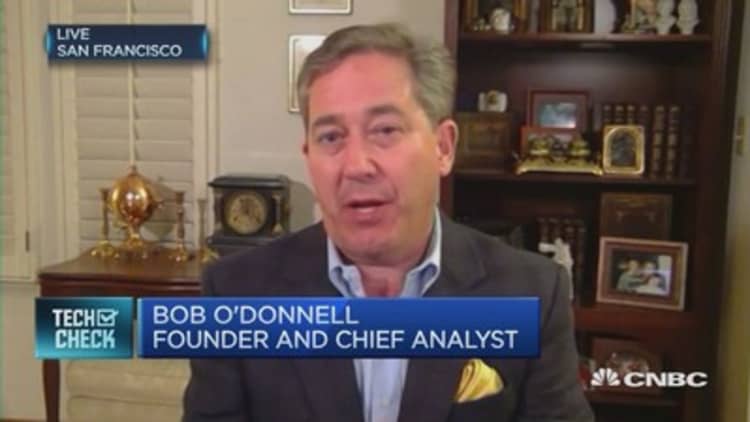


If the U.S. government is able to unlock an iPhone used by a suspected terrorist without help, it spells trouble for users' privacy but that may not hurt Apple's image, according to strategists.
On Monday, the Federal Bureau of Investigation (FBI) told a U.S. judge that a third party had "demonstrated an alternate method" for unlocking the iPhone used by the suspect behind last year's terror attack in San Bernardino, California.
If that's true, it would shatter the illusion that Apple can create unbreakable software, said Gene Munster, managing director and senior research analyst at Piper Jaffray.
"People are going to question how secure the iOS [Apple's operating system] is if the FBI can hire someone to hack it."
For months, debate has raged on whether the tech behemoth should assist the FBI by unlocking the iPhone 5c used by Syed Farook, who along with his wife Tashfeen Malik, killed 14 people in an assault on a government center on December 2.
Apple CEO Tim Cook has insisted that he will not concede, citing the "catastrophic security implications" of creating a hack to one of the world's most popular phones.
If the FBI is able to do so without the aid of Apple or global tech companies who have thrown their support behind Cook, it could bring Cook's doomsday predictions on privacy into reality, Munster said.
"It sends a message that you are never really secure... The implication is you have to be careful what you use your phone for," he told CNBC's Asia Squawk Box.
So far, the FBI has not offered details on how it came up with this third-party solution.
"Most likely what's happened is that the FBI gave the challenge of breaking the phone to several different people. My guess is that one of those people who had the phone made some progress and so that's why you see this bizarre turn of events," explained Munster.
A series of tweets on Monday referred to the possible existence of a "zero-day" hack, which involves exploiting vulnerabilities in software that is unknown to the creator.
But even if a third-party does breach Apple's prized software, it's not necessarily a downfall for the Cupertino giant.
"It won't impact iPhone sales. This particular phone is an iPhone 5c running iOS 8, an old version of the operation system on a particular model. Even if they can break into that, it may not translate into other iPhones or newer operating systems, like the 9.1 released on Monday," said Bob O'Donnell, founder and chief analyst at Technalysis Research.
For now, Monday's news won't weigh on Apple as the onus is back on the FBI to prove that its method of unlocking the iPhone works, he continued.
Munster agreed, noting that even in a world where phones are easily hacked, people would still trust the strength of iOS over Android or Windows.
However, there's a chance that Monday's news may just be a delay tactic, O'Donnell warned.
"This may just the hand that the FBI wants to play to force Apple to respond, the court case could still come back .... This is another twist in a very strange case, according to many legal experts."
—Additional reporting by Anita Balakrishnan.


